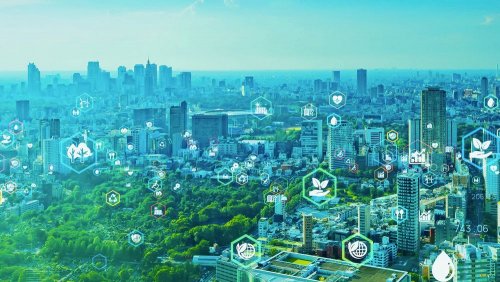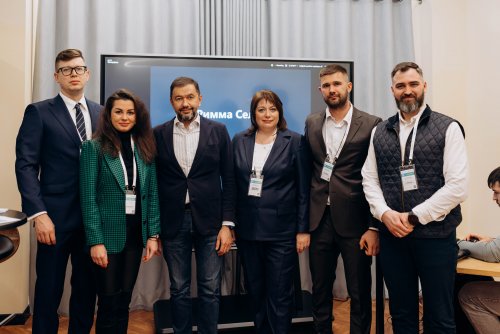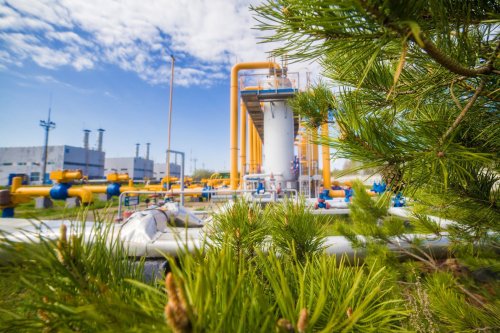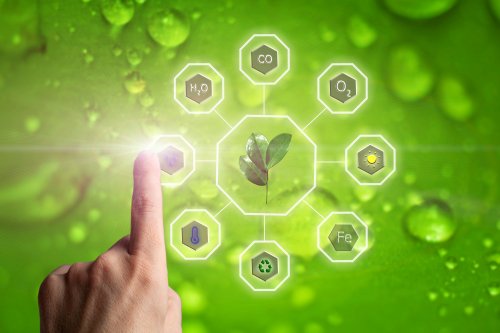The Ukrainian public prepared 2 models of green recovery of the country after the war: "ambitious" and "pragmatic", which are designed to overcome the destructive consequences of russian aggression and strengthen the state's position.
They were presented and discussed with business and government representatives, analysts and experts at online discussion "Green recovery of Ukraine: mission (im)possible" on Wednesday, September 14, reports Ukrainian Energy.
Researchers of the resource-analytical center "Society and Environment" together with partners analyzed the vision of Ukraine and its international partners, in particular the European Commission and the World Bank. They rejected the inertial model of recovery, which would have provided for separate tasks in the field of environment and climate without strengthening them and implementing other sectoral tasks.
"The ambitious model assumes that our main goals are green (climate neutral or green economy, green growth, sustainable agriculture, etc.), as well as the processes to achieve them. The ambitious model of post-war recovery can be briefly described as Green [post-war] course of Ukraine. Its vision is Green Ukraine as part of a global climate-neutral economy," the analytical note says.
Zoryana Kozak, senior analyst of the center's resource-analytical center "Society and Environment", explained that the difference between these models lies in the values, goals, general and sectoral principles, as well as the tools and mechanisms that can be used. In the ambitious model, economic performance increases and pressure on minerals decreases.
According to her, the ambitious model answers the question "What do we want to achieve?", and the pragmatic model – "How will we achieve "non-green" goals?". The pragmatic model is a green tool for achieving goals that are not always green, for example, energy independence, security, etc.
Roman Nitsovych, director of research at the DiXi Group analytical center, emphasized that public organizations aim to raise awareness of the strategies, policies, and tools of the European Green Course, as well as to include measures and policies that meet the principles of the European Green Course in Ukrainian sectoral policies, increase their level in national policy priorities.
"Business actively supports the idea of a green recovery of Ukraine as one of the components of sustainable economic development – but not at the expense of increasing regulations, permits, taxes, transfer of responsibility, inspections. But at the expense, as in the EU, of financial incentives, grants compatible with a state of projects," said Stanislav Zinchenko, chairman of the industrial ecology and sustainable development committee of the European Business Association, director of the GMK Center company, who represented the position of business.
Oleksandr Tarasenko, head of the European and Euro-Atlantic integration expert group of the Directorate of Strategic Planning and European Integration of the Ministry of Energy, noted that the green development of Ukraine will depend on finances. Other participants of the event agreed with him. After all, the lack of money makes any recovery impossible.
The secretary of the Voznesensk City Council, Viktoria Baltser, emphasized that grant funds and investments are easy to find if the proposal is good and well prepared.
Svyatoslav Pavlyuk, executive director of the "Energy-efficient Cities of Ukraine" association, stated that it is necessary to hold a discussion on effective ways of directing funds to energy-efficient measures.
He said that Ukraine's status as a candidate for EU membership will guide it in the right direction, as will the general policies of international financial organizations regarding the provision of resources for green solutions. According to Pavlyuk, mining towns will have no future without economic reorientation.
"The only international investments that will be possible in the post-war period are investments in the subsoil. Ukraine can act as a source of resources for the European Union instead of unfriendly countries that were a source of resources before that. That is, Ukraine will demand more active, fast, intensive use of the subsoil. Without approval procedures for 300 days," Zinchenko expressed the opposite worldview.
The article noted that his words caused an emotional discussion in the expert environment.
Nelly Petkova, an analyst from the Organization for Economic Cooperation and Development (OECD), noted that Ukraine will need external support. She proposed resorting to the so-called ecological swap, when the state agrees on the restructuring of the external state debt in such a way that part of the money is not returned to the creditor, but remains in the state and is directed to green measures.
As EcoPolitic reported before, the leaders of the world's leading economies agreed on Green Marshall Plan in the clean energy transition to ensure a cleaner, greener, freer, fairer and safer future for people and the planet.





